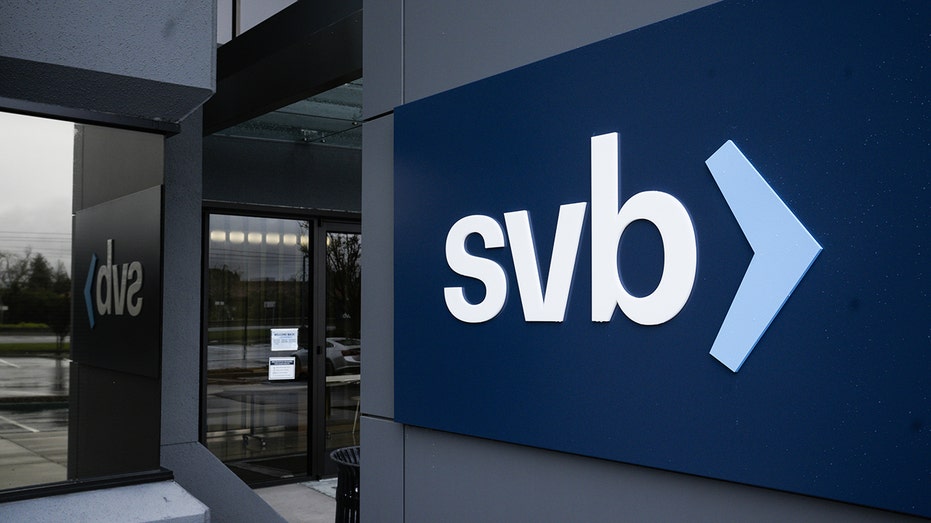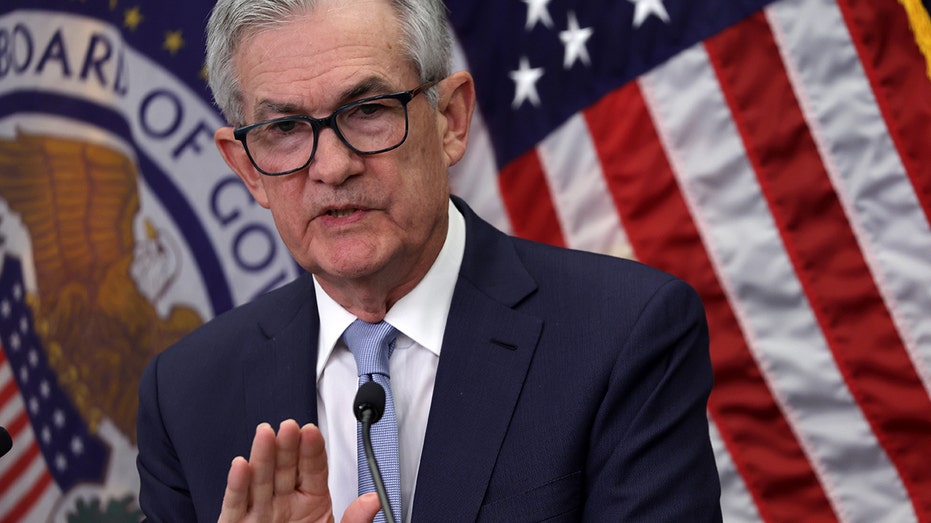Regional banks 'reasonably stable' but regulators need to provide 'more clarity': former FDIC chair
Failure of Silicon Valley Bank, Signature Bank has raised questions about regulators' actions
Silicon Valley Bank got government bailout: Bair
Former FDIC Chair Sheila Bair discusses the fallout from SVB's failure and assesses the stability of the regional banking system on "The Claman Countdown."
Former Federal Deposit Insurance Corporation (FDIC) Chair Sheila Bair said Monday that regional banks appear stable but urged regulators to provide greater clarity about why they provided systemic risk exceptions for uninsured deposits at the failed Silicon Valley Bank and Signature Bank.
Bair, who chaired the banking regulator during the financial crisis of 2008-2009, appeared on FOX Business Network’s "The Claman Countdown" on Monday and told host Liz Claman that she thinks the regional banking system is "reasonably stable" and added, "The problem with these systemic risk exceptions is that they kind of suggest that there’s something bigger and broader going on."
"Silicon Valley Bank in particular, that was an unusual situation. They had an unusual deposit base, rapid growth, terrible interest [rate] risk management – there’s just a lot of idiosyncratic things about that bank that led to its failure," Bair said. "But with these systemic risk exceptions, and packaging it with Signature, it suggests that there’s something broader going on, and I don’t know if that’s the case or not, but the markets obviously think there is and, more troubling, uninsured depositors think there is."
SILICON VALLEY BANK: FED SAYS VICE CHAIR FOR SUPERVISION TO REVIEW WHAT LED TO COLLAPSE

Silicon Valley Bank headquarters in Santa Clara, California, on March 10, 2023. SVB became the biggest U.S. bank failure in more than a decade after its long-established customer base of tech startups grew worried and yanked deposits. (Philip Pacheco / Bloomberg via Getty Images / Getty Images)
Bair explained, "I think we need better clarity and communication on this as to what the concern is, and if there is a concern that we will have wide-scale runs on uninsured deposits – I don’t see that – but if the regulators are seeing that, I think they do something truly systemic, not just these one-off things for a couple of banks because that just puts pressure on the other banks who don’t have the systemic risk designation."
Typically, the FDIC covers deposits at insured financial institutions up to $250,000, and amounts over that threshold are considered uninsured, leaving those depositors on the hook for losses on their uninsured deposits if the bank fails. Following the failure of Silicon Valley Bank and Signature Bank, the Federal Reserve, Treasury Department and FDIC announced that all depositors – even those with accounts above the threshold – at those two institutions would be backed by the FDIC because of a systemic risk exception approved by regulators.
That move was intended to stave off concern that the business clients of those banks would become distressed because too much of their working capital used for things like payroll and operational expenses would be inaccessible as they were held in accounts above the FDIC insurance threshold.
HOW SILICON VALLEY BANK GOT BURNED

An FDIC sign is posted on a window at a Silicon Valley Bank branch in Wellesley, Massachusetts, on March 11, 2023. (AP Photo / Peter Morgan / AP Newsroom)
Claman asked Bair whether the systemic risk exception granted to the two banks amounted to a "bailout" of uninsured depositors.
"Well, it is a bailout – different people define ‘bailouts’ different ways," Bair said. "We have a set of rules, we give a lot of support to banks; deposit insurance is one of the things we let banks have – they pay a premium for it, it’s capped at $250,000. If we change those rules for a couple of banks and then give them more coverage than anybody else gets, or they were entitled to under the law, I think that’s a bailout."
"Banks will pay for this, all the banks pay into this special assessment when you make a systemic risk exception, including community banks, big banks – it’s weighted towards big banks, but community banks are going to be paying into that as well," Bair said. "I don’t think anybody thinks that community banks are going to get a systemic risk exception to protect their uninsured deposit. So, there are a lot of issues of fairness and equity around this, and I sympathize with the regulators; they had to make some fast decisions, but, boy, I think we need some better communication and clarity about why these two institutions were systemic, and if there’s a broader problem, why aren’t you taking broader steps."
FEDS HOLD AUCTION FOR FAILED SILICON VALLEY BANK, MOVE TO PROTECT UNINSURED DEPOSITORS

Federal Reserve Board Chairman Jerome Powell (Alex Wong / Getty Images / File / Getty Images)
Claman noted that billionaire investor Bill Ackman, who is the founder and CEO of the Pershing Square Capital Management hedge fund, called for the FDIC and other banking regulators to immediately extend insurance to all deposits, including those that would ordinarily be uninsured: "I don’t see evidence that it’s necessary, though there’s sometimes fear even if the banks are basically OK that can exacerbate things."
Bair explained how during the financial crisis the FDIC temporarily extended the deposit guarantee to cover all accounts, including those above the $250,000 cap, to cover the sorts of transaction accounts that businesses use for payroll and operating expenses that require larger balances.
| Ticker | Security | Last | Change | Change % |
|---|---|---|---|---|
| SIVB | NO DATA AVAILABLE | - | - | - |
| SBNY | SIGNATURE BANK (NEW YORK NEW YORK) | 0.94 | -0.01 | -1.04% |
GET FOX BUSINESS ON THE GO BY CLICKING HERE
She noted that Congress told the FDIC it had to end the program without explicit authority from Congress, and the agency has a streamlined way to request that authority. All banks paid into that program and received protection.
Bair said, "If they feel they needed to go that route – and that’s a big if because I don’t really see it – but if they feel they have a widespread problem, it seems to me that, yes, they should do a broad-based program that would be even-handed and protect all the banks."




















